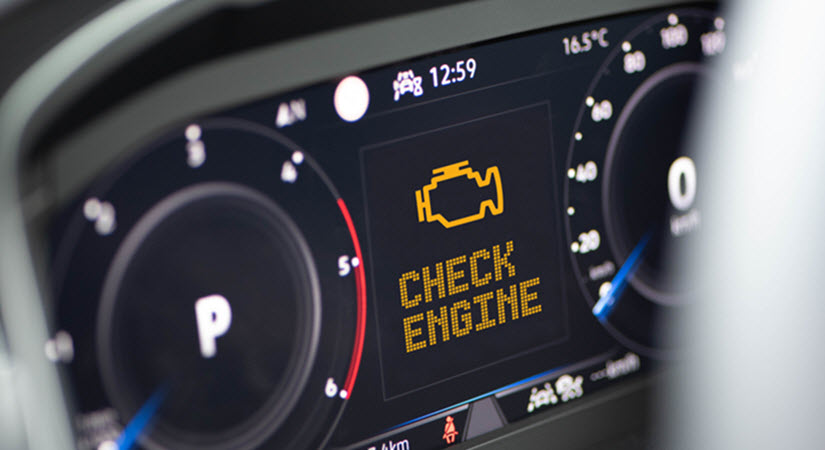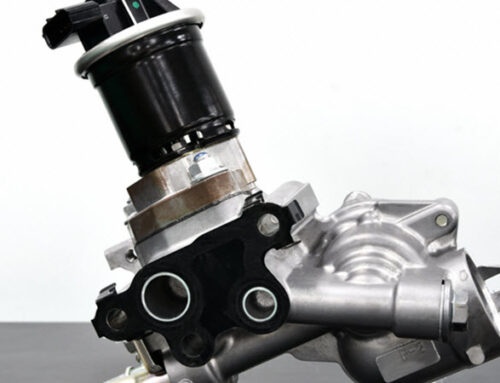Driving your Audi is an incredible experience… until the dreaded check engine light appears on the dashboard. It could be many things, but a malfunctioning oxygen sensor is a common occurrence. No doubt your Audi is a high-performance European piece that combines beauty with comfort, but over time, it might encounter troubles that trigger the warning lights on the dashboard to alert you about the issue.
As the oxygen sensor usually measures the amount of unburned oxygen present in the exhaust gases, maintaining a perfect air-fuel mixture, when it malfunctions, it can throw off the entire combustion process and increase the emissions. This can be bad for both the engine and the environment. Don’t want to face these nuisances?
Read to the end of this guide to spot whether the oxygen sensor is the culprit behind the activated check engine light.
What Leads to A Defective Oxygen Sensor in Your Audi?
Aging and Normal Wear
Eventually, due to aging, frequent usage, high heat, and exhaust gases, the oxygen sensors fail to function properly. Even when a single sensor malfunctions, the check engine light automatically starts glowing on the dashboard to indicate something’s not right in the exhaust system. Subsequently, you may also observe reduced fuel efficiency, rough idling, poor engine efficiency, and comparatively higher emissions than usual. This can also fail you in the emission tests, prohibiting you legally from driving your Audi. Pinpointing and replacing the faulty sensors with new pieces would resolve the issues.
Dirty Fuel or Oil Leaks
If you use low-quality, cheap, or dirty fuel continuously, the contaminants or the residues of the fuel stick to the oxygen sensors, preventing them from taking precise readings of the air-fuel mixture and maintaining a correct ratio for combustion. The same happens when the engine oil also leaks or drips on the sensors, covering them. This usually results in reduced gas mileage, occasional engine misfires, and increased toxic emissions, along with the illuminated check engine light. You should always use premium-quality fuel and oil to avoid these issues in the long run. Moreover, you should get the faulty sensors replaced with new ones as well as let us spot and seal the oil leaks, ensuring peak engine performance with no environmental pollution.
Problematic Catalytic Converter
When the catalytic converter fails, it puts additional pressure on the oxygen sensors due to harmful exhaust fumes and extreme temperature fluctuations, ultimately damaging the sensors. In this case, you may notice the check engine light get activated, as well as you may also feel sluggish acceleration, smell a rotten egg odor coming from the exhaust, and experience an unstable idling. Professional diagnostics include thorough inspection and replacement of the catalytic converter as needed, followed by performing effective treatments to handle the oxygen sensor failure.
Leaky Exhaust System
An exhaust system that has holes or cracks in its internal parts can allow the air to pass into it through those leaks, causing incorrect measurements from the oxygen sensor. Hearing a loud or strange hissing or popping noise, especially from the exhaust while the engine is on, increased emissions, and the steady check engine light are some of the common warning signs that indicate a leaky exhaust system, along with failed oxygen sensors. The leaks in the exhaust system should be detected and patched with effective repair strategies. Plus, the oxygen sensors should be recalibrated or replaced according to the requirements to get everything back on track.
Polluted Coolant
When the cooling system starts developing leaks in its components or hoses and seeps out the coolant through them, gradually the coolant reaches the engine and starts contaminating the exhaust system, stopping the oxygen sensors from taking precise readings of the air-fuel mixture inside the combustion chamber. Apart from the triggered check engine light, you may also observe white smoke coming from the tailpipe and overheated gauges. Here, the first step is finding the leaks, patching them, and then flushing the cooling system. Oxygen sensor replacement can be the final touch to resolve this trouble.
What Makes Us Different from Other Repair Hubs?
At Fifth Gear Automotive, our  ASE-certified technicians are ready to help you out regardless of the severity of the issues. Whether the check engine light is glowing due to oxygen sensor failure, coolant leaks, or issues with the catalytic converter, we use our cutting-edge tools to pinpoint the exact problem and fix the trouble in no time, making your Audi feel like nothing has ever happened. So, whether you are in Lewisville, Argyle, McKinney, Cross Roads, Allen, Frisco, or Castle Hills, make an appointment with us today and restore your Audi’s optimal performance and efficiency in the long run.
ASE-certified technicians are ready to help you out regardless of the severity of the issues. Whether the check engine light is glowing due to oxygen sensor failure, coolant leaks, or issues with the catalytic converter, we use our cutting-edge tools to pinpoint the exact problem and fix the trouble in no time, making your Audi feel like nothing has ever happened. So, whether you are in Lewisville, Argyle, McKinney, Cross Roads, Allen, Frisco, or Castle Hills, make an appointment with us today and restore your Audi’s optimal performance and efficiency in the long run.






